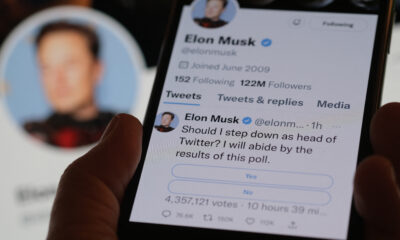International
Brazil’s most-voted lawmaker suspended from Twitter
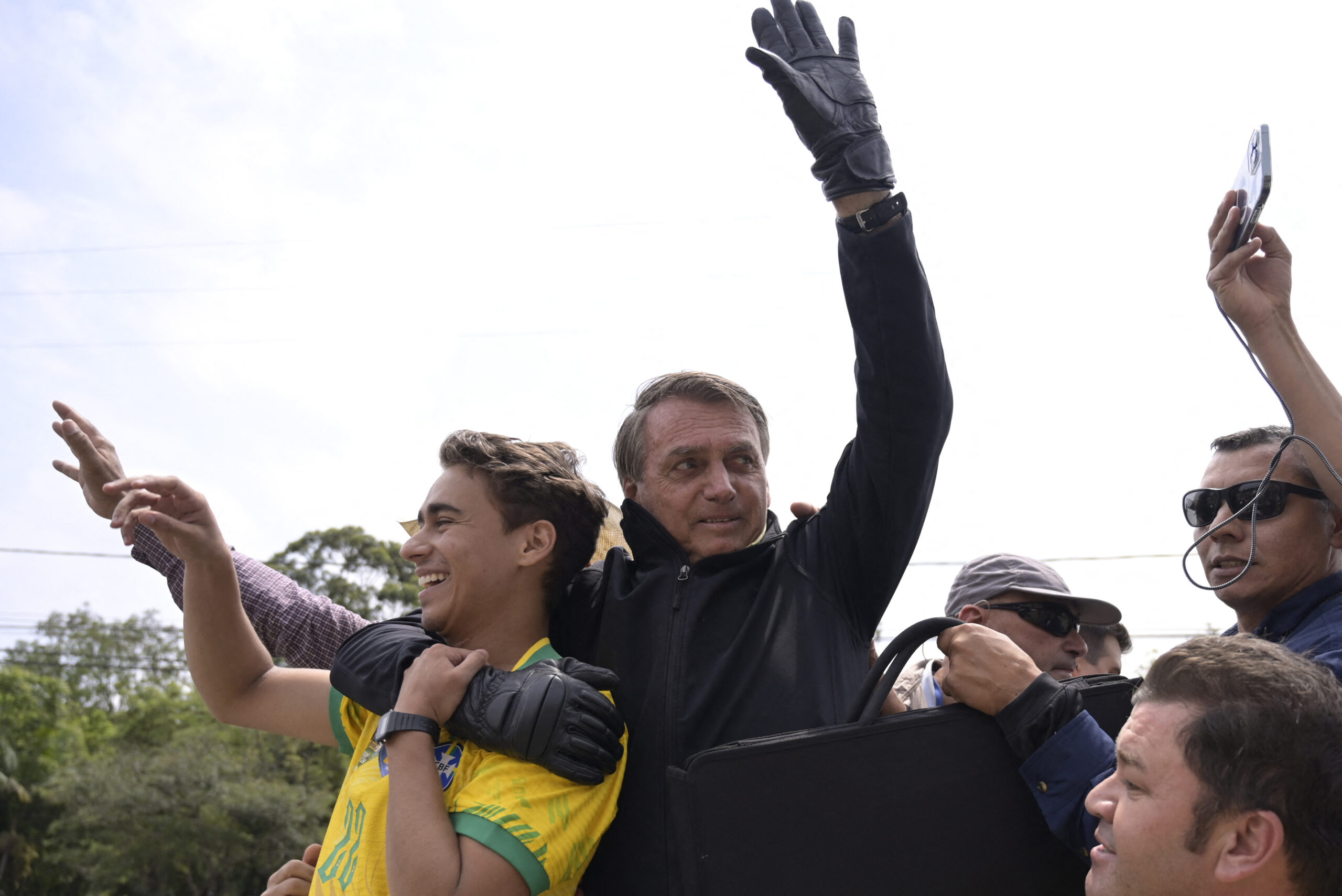
| By AFP |
An ultra-conservative who was the most-voted lawmaker in Brazil’s elections said Saturday his social media accounts had been suspended after he called for an investigation of alleged irregularities in President Jair Bolsonaro’s loss at the polls.
Nikolas Ferreira, 26, a social media star and fervent supporter of the far-right president, had posted a series of messages on Twitter Friday calling on electoral authorities to investigate accusations that some of Brazil’s electronic voting machines gave unusually large scores to leftist president-elect Luiz Inacio Lula da Silva, who defeated Bolsonaro in the October elections.
“I’m asking the (Superior Electoral Tribunal) to verify revelations made today of possible fraud in the Brazilian elections. Valid doubts have emerged,” wrote Ferreira, a devout Christian with more than two million followers on Twitter and Instagram.
He said the information came from a video on a pro-Bolsonaro YouTube channel about supposed irregularities in “unauditable” voting machines manufactured before 2020.
Bolsonaro and his supporters have regularly alleged Brazil’s voting system is plagued by fraud, with scant evidence.
The Superior Electoral Tribunal (TSE) has moved aggressively to counter disinformation around the elections, including by ordering false claims be blocked on social media — drawing accusations of bias from Bolsonaro.
Ferreira’s Twitter account was inaccessible in Brazil, displaying a message that said it had been “withheld in response to a legal demand.”
Ferreira accused the authorities of censorship in a message on Instagram, saying he “never alleged anything, just asked for an investigation.”
He posted a picture of himself with black tape over his mouth, with the message: “Share this information… The truth will prevail.”
The TSE did not confirm it had ordered Ferreira’s accounts suspended. A spokeswoman for the electoral authority told AFP such rulings are confidential court documents.
Ferreira, who says he is at “war” with the “silent threat of communism” in Brazil, was elected to Congress for the southeastern state of Minas Gerais with 1.5 million votes in the country’s October 2 elections.
Lula went on to defeat Bolsonaro in a polarizing presidential runoff election on October 30, with 50.9 percent of the vote to 49.1 percent for the incumbent.
Central America
Guatemala’s Attorney General Consuelo Porras Loses Bid for Constitutional Court Seat

Guatemala’s attorney general, Consuelo Porras, who has been sanctioned by the United States over corruption allegations, lost a key vote on Monday in which a public university selected two of the 10 magistrates for the country’s highest constitutional court. However, she could still seek a seat through another nominating body.
The election of five full magistrates and five alternates to the Corte de Constitucionalidad (CC) is taking place gradually over more than two months and is considered crucial in the ongoing struggle for control of Guatemala’s judiciary, which critics say has long been influenced by a political and economic elite accused of corruption.
According to results announced at a press conference, the governing council of the Universidad de San Carlos de Guatemala (USAC) rejected Porras, who had applied as either a full or alternate magistrate, and instead chose two candidates aligned with the university rector. The vote was held at a hotel in Antigua, about 35 kilometers from the capital.
Despite the setback, Porras — whose term as attorney general ends on May 16 — could still be nominated to the Constitutional Court by the Corte Suprema de Justicia, which appoints two magistrates. The remaining six are selected by the president, the bar association and Congress.
“It’s always a possibility,” the 72-year-old lawyer said days earlier when asked by reporters whether she would seek nomination through another institution if she lost the USAC vote.
Porras has been sanctioned by Washington and the European Union for allegedly attempting two years ago to block the inauguration of President Bernardo Arévalo and for pursuing legal actions against anti-corruption prosecutors, judges, journalists and social leaders since taking office in 2018.
The USAC vote was controversial because most members of the university’s governing council are serving beyond the expiration of their terms. Students, academics and social activists staged protests against Porras’ candidacy.
International
Florida judge sets 2027 trial in Trump’s $10 billion lawsuit against BBC

A federal judge in Florida has scheduled February 2027 for the trial in the lawsuit filed by U.S. President Donald Trump against the BBC, in which he is seeking $10 billion in damages for defamation.
Trump accuses the British broadcaster of airing a misleading edit of a speech he delivered on January 6, 2021, which, he says, made it appear that he explicitly urged his supporters to attack the U.S. Capitol in Washington.
The president filed the suit in December in federal court in Florida, alleging defamation and violations of a law governing business practices when the program was broadcast ahead of the 2024 election.
Trump is seeking $5 billion in damages for each of the two claims.
Lawyers for the BBC unsuccessfully asked the court to dismiss the case, arguing that Trump had not suffered a “legally recognizable harm,” since the investigative program Panorama, which included the edited footage, aired outside the United States.
International
Head-of-state diplomacy key to guiding China–U.S. ties, Beijing says
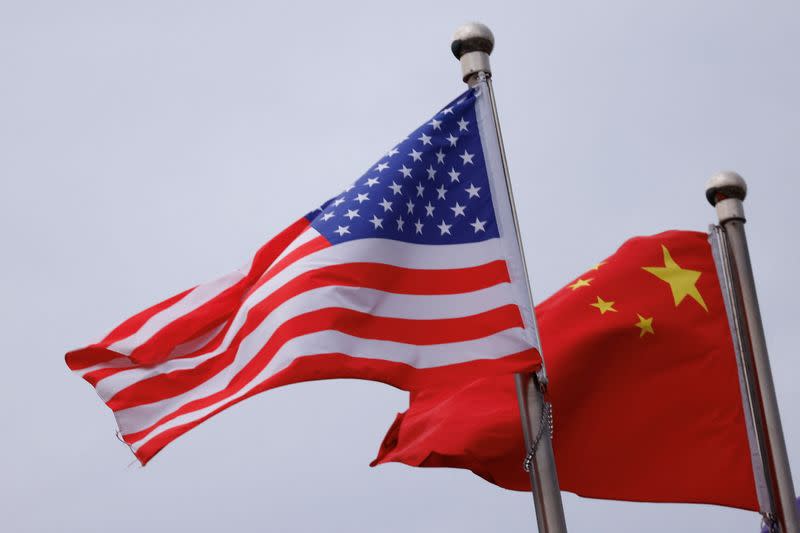
Head-of-state diplomacy plays an irreplaceable strategic guiding role in China–United States relations, Chinese Foreign Ministry spokesperson Lin Jian said on Thursday during a regular press briefing, when asked about high-level exchanges between the two sides.
Lin added that in a recent phone call, U.S. President Donald Trump once again expressed his intention to visit China in April, while Chinese President Xi Jinping reiterated his invitation.
Both sides remain in communication regarding the matter, the spokesperson said.
Lin noted that the essence of China–U.S. economic and trade ties lies in mutual benefit and win-win outcomes.
“Both parties should work together to implement the important consensus reached by the two heads of state, injecting greater certainty and stability into China–U.S. economic and trade cooperation, as well as into the global economy,” he said.
-

 International4 days ago
International4 days agoHead-of-state diplomacy key to guiding China–U.S. ties, Beijing says
-

 International4 days ago
International4 days agoFlorida judge sets 2027 trial in Trump’s $10 billion lawsuit against BBC
-

 Central America2 days ago
Central America2 days agoGuatemala’s president denounces MP raids during Constitutional Court election
-

 International4 days ago
International4 days agoTrump administration to end special immigration operation in Minnesota
-
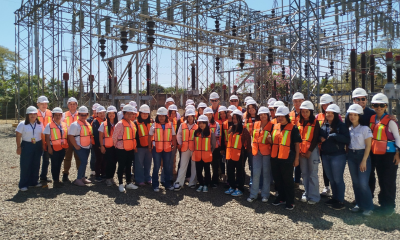
 Central America2 days ago
Central America2 days agoTeens visit ETESAL substation to learn about responsible energy use
-
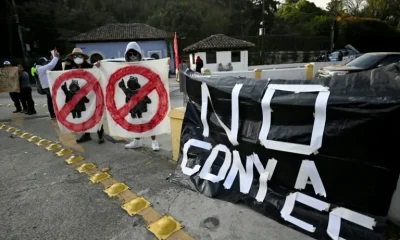
 Central America8 hours ago
Central America8 hours agoGuatemala’s Attorney General Consuelo Porras Loses Bid for Constitutional Court Seat

















































































